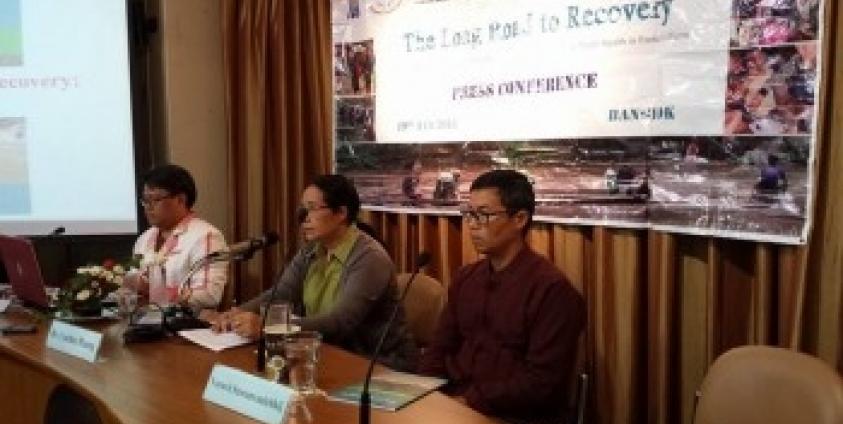A new report by a network of ethnic community health organisations was released today at the Foreign Correspondents Club of Thailand, Bangkok. The report, The Long Road to Recovery, based on data surveyed from 64 townships, with a target population of half a million people, “shows decreased rates of malaria and maternal malnutrition, and improved patterns of breastfeeding.”
Despite these improved indicators, the report also found that “infant and child mortality rates in eastern Burma remain higher than the country’s official figures, and are similar to other conflict-affected countries such as Somalia, reflecting the ongoing lack of protection and security despite ceasefires and large increases in humanitarian aid to Burma.”
The ethnic and community-based health organizations that carried out the survey said that, “due to conflict and persecution, we have developed our own primary health care service structures, outside the central government health system, through a network of rural clinics and mobile medical teams across eastern Burma.”
The report, The Long Road to Recovery Data found that “ethnic health groups are the main health care providers for these conflict affected communities. 70% of respondents accessed treatment from ethnic health organizations, and just 8% from government facilities. When seeking health care, 75% of respondents had to walk to the nearest health facility, taking on average an hour and a half.”
“We have a long way to go in obtaining sustainable peace,” said Dr. Cynthia Maung, a co-author of the report. “To respond to the health challenges facing eastern Burma we must capitalize on the existing infrastructure built by ethnic and community-based health organizations.”
The report, the first since the government and the Karen National Union signed a ceasefire in 2012 noted that there have “some improved health indicators, linked to programming of local ethnic health providers, but highlights that sustained improvements to the overall health of conflict-affected communities remain dependent on the peace and reform process, and may take decades.”








